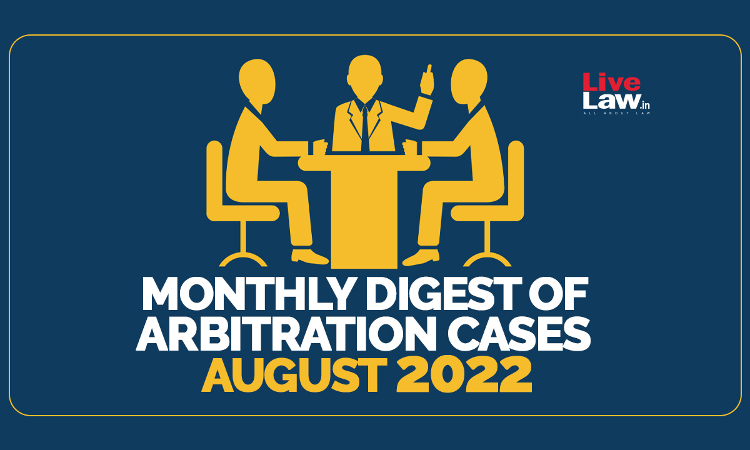- Home
- /
- News Updates
- /
- Arbitration Cases Monthly Round Up:...
Arbitration Cases Monthly Round Up: August 2022
ausaf ayyub
2 Sept 2022 1:30 PM IST
Supreme Court: Mere Use Of Words "Arbitration" Or "Arbitrator" In A Clause Won't Make It Arbitration Agreement: Supreme Court Case Title: Mahanadi Coalfields Ltd. versus IVRCL AMR Joint Venture Citation: 2022 LiveLaw (SC) 657 The Supreme Court observed that an arbitration agreement should disclose a determination and obligation on behalf of the parties to refer the...
Next Story



